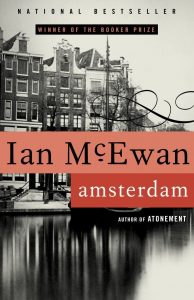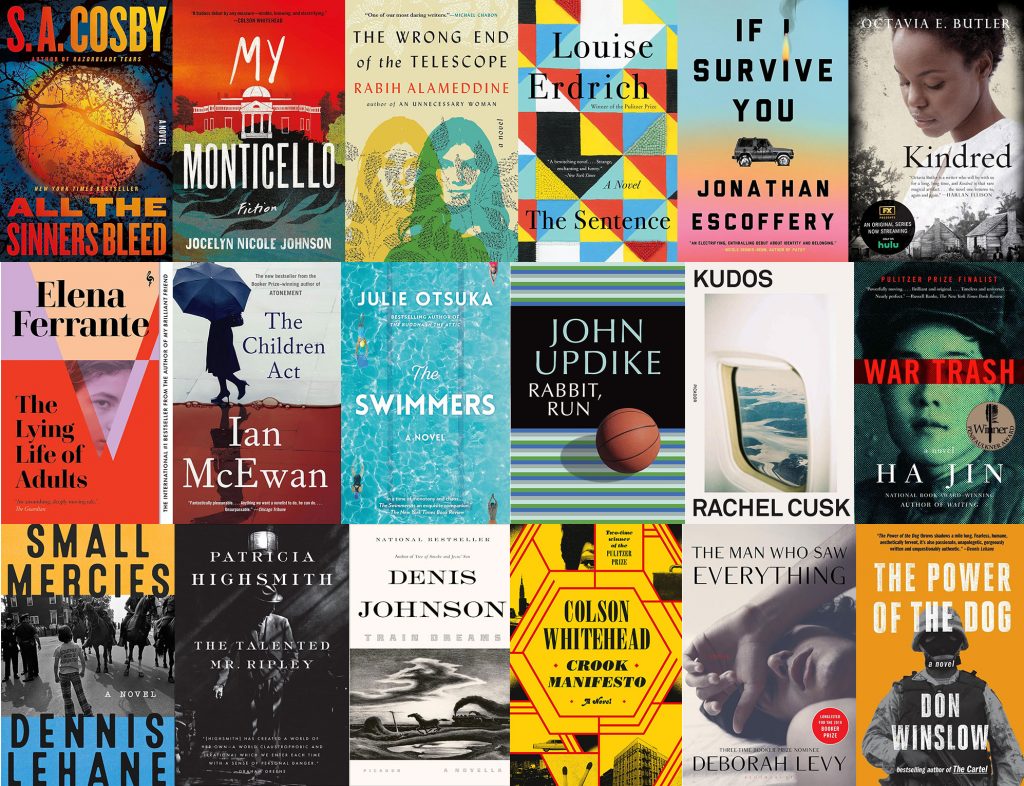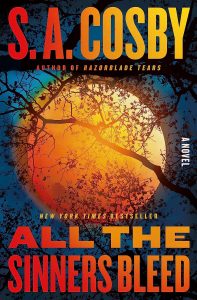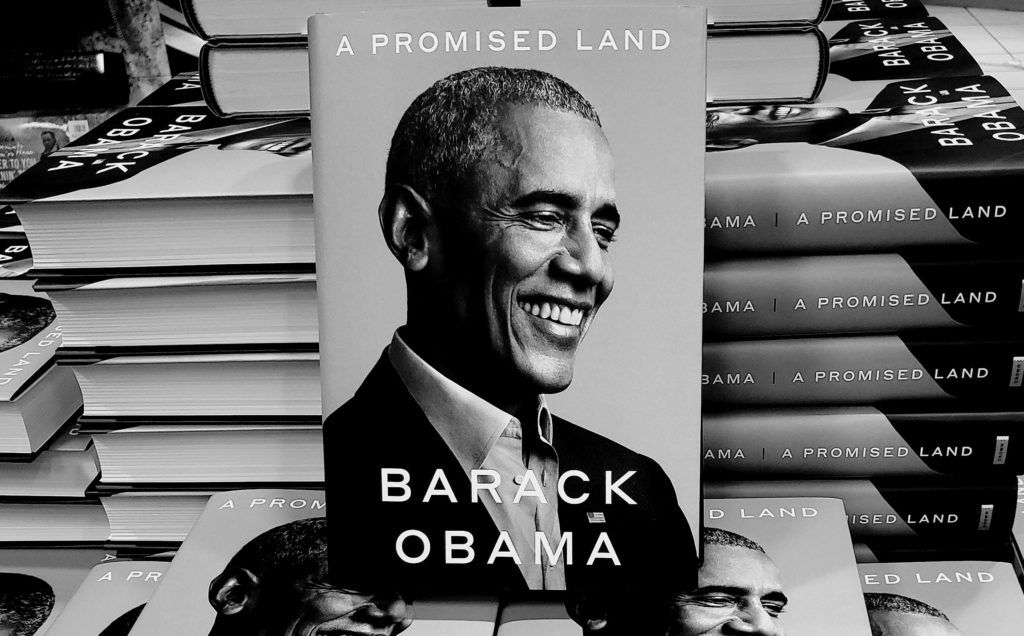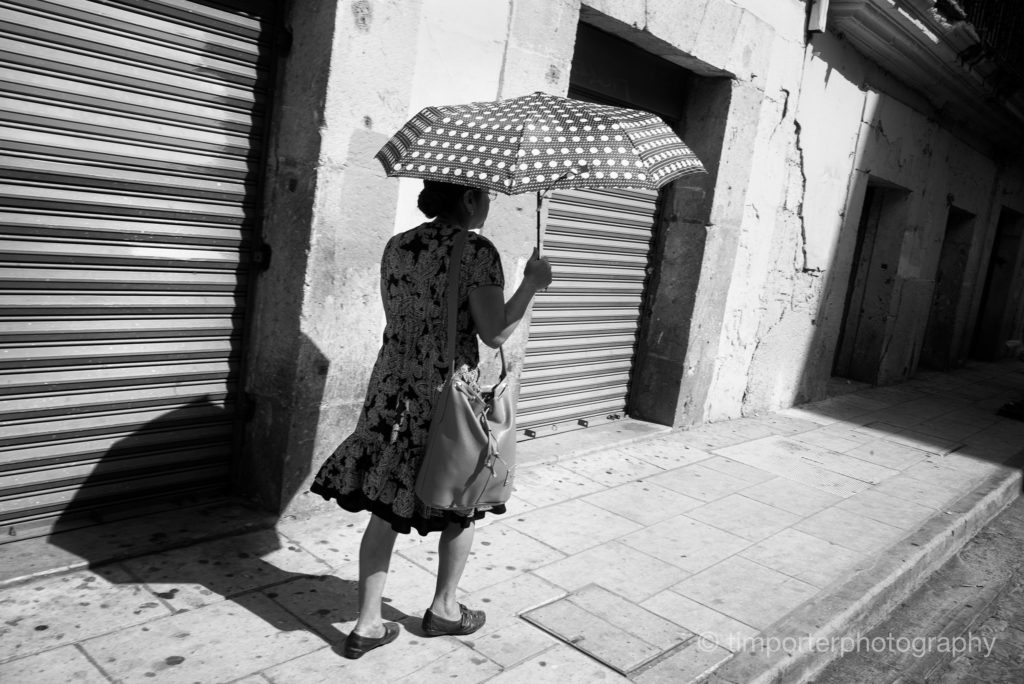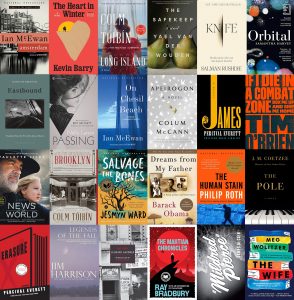
By November last, I was falling behind on my goal of reading (or listening to) one-hundred books in 2024. So, I said to my wife, from now until year’s end I am only choosing books of fewer than two hundred and fifty pages. That’s cheating, she told me.
Fortunately, I ignored her (as she might say I often do), and found myself noshing on a amuse-bouche of titles that were not only delectable but often more tasty than many more portly popular tomes. Among them:
- Orbital, Samantha Harvey (207 pp.)
- The Martian Chronicles, Ray Bradbury (182 pp.)
- The Shadow-Line, Joseph Conrad (192 pp.)
- Eastbound, Maylis de Kerangal (140 pp.)
- The Pole, J.M. Coetzee (166 pp.)
- Passing Nella Larsen (141 pp.)
- If I Die in a Combat Zone, Box Me Up and Ship Me Home, Tim O’Brien (225 pp.)
- Home, Toni Morrison (147 pp.)
- Einstein’s Dreams, Alan Lightman (140 pp.)
- On Chesil Beach Ian McEwan (166 pp.)
Here are the numbers, for those who insist upon them:
- Print – 69
- Audio – 31 (including Barack Obama’s Dreams from my Father and A Promised Land. His august voice alone remedies current discomforts.)
- Did Not Finish (DNF) – 4 (read at least fifty pages)
Once again, thanks to the serendipity of both digital and physical browsing, I found myself delighting in books I might once, limited by a narrower view of the world, never have read. Among them:
- The Safekeep, Yael van der Wouden
- Apeirogon, Colum McCann
- News of the World, Paulette Jiles
- Einstein’s Dreams, Alan Lightman
I have multiples reads from some authors (because why not repeat a good thing?):
Ian McEwan (3), Percival Everett (3), Colm Tóibín (2), Paulette Jiles (2), Jane Harper (2), and among the audio listens for the gym and the trail: Walter Mosely (3), Michael Connelly (3), and Craig Johnson (10).
Finally, ten that I loved, in no particular order:
- Apeirogon, Colum McCann
- Day, Michael Cunningham
- James, Percival Everett
- Flags on the Bayou, James Lee Burke
- The Trees, Percival Everett
- Knife: Meditations After an Attempted Murder, Salman Rushdie
- Legends of the Fall, Jim Harrison
- Eastbound, Maylis de Kerangal
- The Safekeep, Yael van der Wouden
- On Chesil Beach, Ian McEwan
The List, 2024
- Motherless Brooklyn – Jonathan Lethem
- The Brass Verdict – Michael Connelly *
- Nightcrawling – Leila Mottley
- The Women – Kristin Hannah
- This Other Eden – Paul Harding
- The Godfather – Mario Puzo *
- Day – Michael Cunningham
- Devil in a Blue Dress – Walter Mosley *
- Invisible Cities – Italo Calvino
- Amsterdam – Ian McEwan
- Exiles – Jane Harper *
- Lessons – Ian McEwan
- The Lost Man – Jane Harper *
- The Gathering – Anne Enright
- California Fire and Life – Don Winslow *
- Generation Loss – Elizabeth Hand
- Tinkers – Paul Harding
- News of the World – Paulette Jiles *
- The Cold Dish – Craig Johnson
- The Friends of Eddie Coyle – George V. Higgins *
- The World Made Straight – Ron Rash
- Death Without Company – Craig Johnson *
- Enemy Women – Paulette Jiles
- Ordinary Human Failings – Megan Nolan **
- Zero Days – Ruth Ware **
- A Red Death – Walter Mosley *
- Be Mine – Richard Ford
- Sharp Objects – Gillian Flynn *
- Annie Bot – Sierra Greer
- James – Percival Everett
- Kindness Goes Unpunished – Craig Johnson *
- Flags on the Bayou – James Lee Burke
- Until August – Gabriel García Márquez
- City of Dreams – Don Winslow *
- Liliana’s Invincible Summer – Cristina Rivera Garza
- City in Ruins – Don Winslow *
- The Trees – Percival Everett
- Eleanor Oliphant is Completely Fine – Gail Honeyman
- Another Man’s Moccasins – Craig Johnson *
- The Great Fire – Shirley Hazzard **
- Einstein’s Dreams – Alan Lightman
- White Butterfly – Walter Mosley *
- On Chesil Beach – Ian McEwan
- Brooklyn – Colm Tóibín
- The Dark Horse – Craig Johnson *
- Salvage the Bones – Jesmyn Ward
- The Maltese Falcon – Dashiell Hammett
- The Reformatory – Tananarive Due **
- The Lede – Calvin Trillin
- Knife: Meditations After an Attempted Murder – Salman Rushdie
- Pet Sematary – Stephen King *
- Junkyard Dogs – Craig Johnson *
- Anxious People – Fredrik Backman
- Between the World and Me – Ta-Nehisi Coates *
- Nightwoods – Charles Frazier
- An American Marriage — Tayari Jones
- Legends of the Fall – Jim Harrison *
- The Human Stain – Philip Roth
- Autocracy Inc. – Anne Applebaum
- Nobody’s Angel – Thomas McGuane *
- In the Garden of Beasts: Love, Terror, and an American Family in Hitler’s Berlin – Erik Larson
- Atonement – Ian McEwan
- Hell is Empty – Craig Johnson *
- Speedboat – Renata Adler
- Long Island – Colm Tóibín
- The Nearest Exit – Owen Steinhauer **
- If I Die in a Combat Zone, Box Me Up and Ship Me Home – Tim O’Brien
- Fade Away – Harlan Coben *
- The Almost Moon – Alice Sebold
- The Heart in Winter – Kevin Barry
- Dreams from My Father – Barack Obama *
- Sofrito – Phillippe Diederich
- Passing – Nella Larsen
- Breafast at Tiffany’s – Truman Capote
- The Pole – J.M. Coetzee
- Eastbound – Maylis de Kerangal
- The Wife – Meg Wolitzer
- A Promised Land – Barack Obama *
- Fat City – Leonard Gardner
- The Girls of Slender Means – Muriel Spark *
- The Shadow-Line – Joseph Conrad
- The Overlook, Harry Bosch – Michael Connelly *
- Burn – Peter Heller
- Creation Lake – Rachel Kushner
- 9 Dragons, Harry Bosch – Michael Connelly *
- Pedro Páramo – Juan Rulfo
- Home – Toni Morrison
- A Serpent’s Tooth – Craig Johnson *
- The Marian Chronicles – Ray Bradbury
- Erasure – Percival Everett
- Fortune Favors the Dead – Stephen Spotswood *
- Parade – Rachel Cusk
- Journey Into Fear – Eric Ambler
- Any Other Name – Craig Johnson *
- Orbital – Samantha Harvey
- Dry Bones – Craig Johnson *
- I Remember Nothing – Nora Ephron
- The Invisible Hour – Alice Hoffman
- The Safekeep – Yael van der Wouden
- Mildred Pierce – James M. Cain
* Audio
** Did Not Finish

